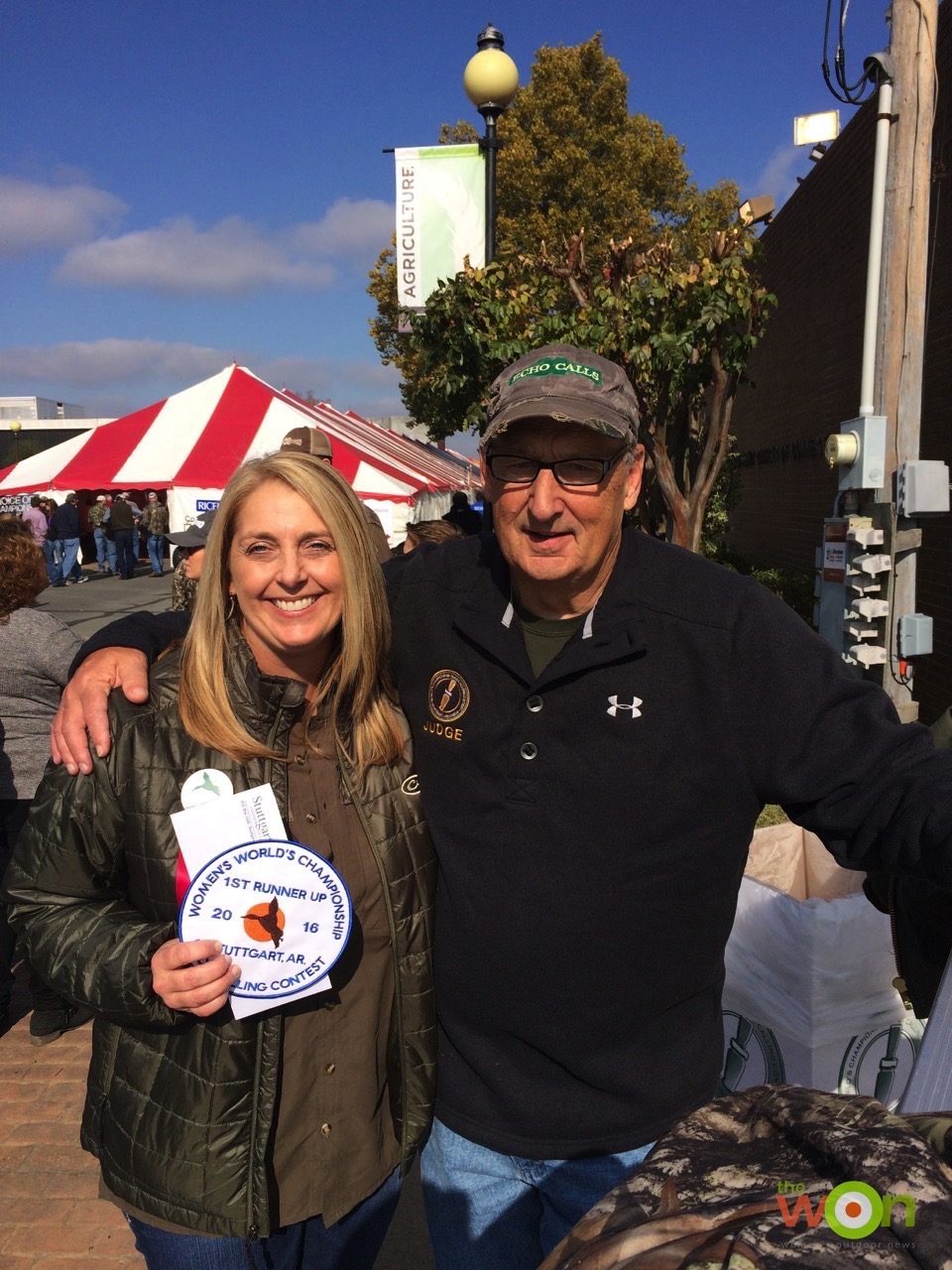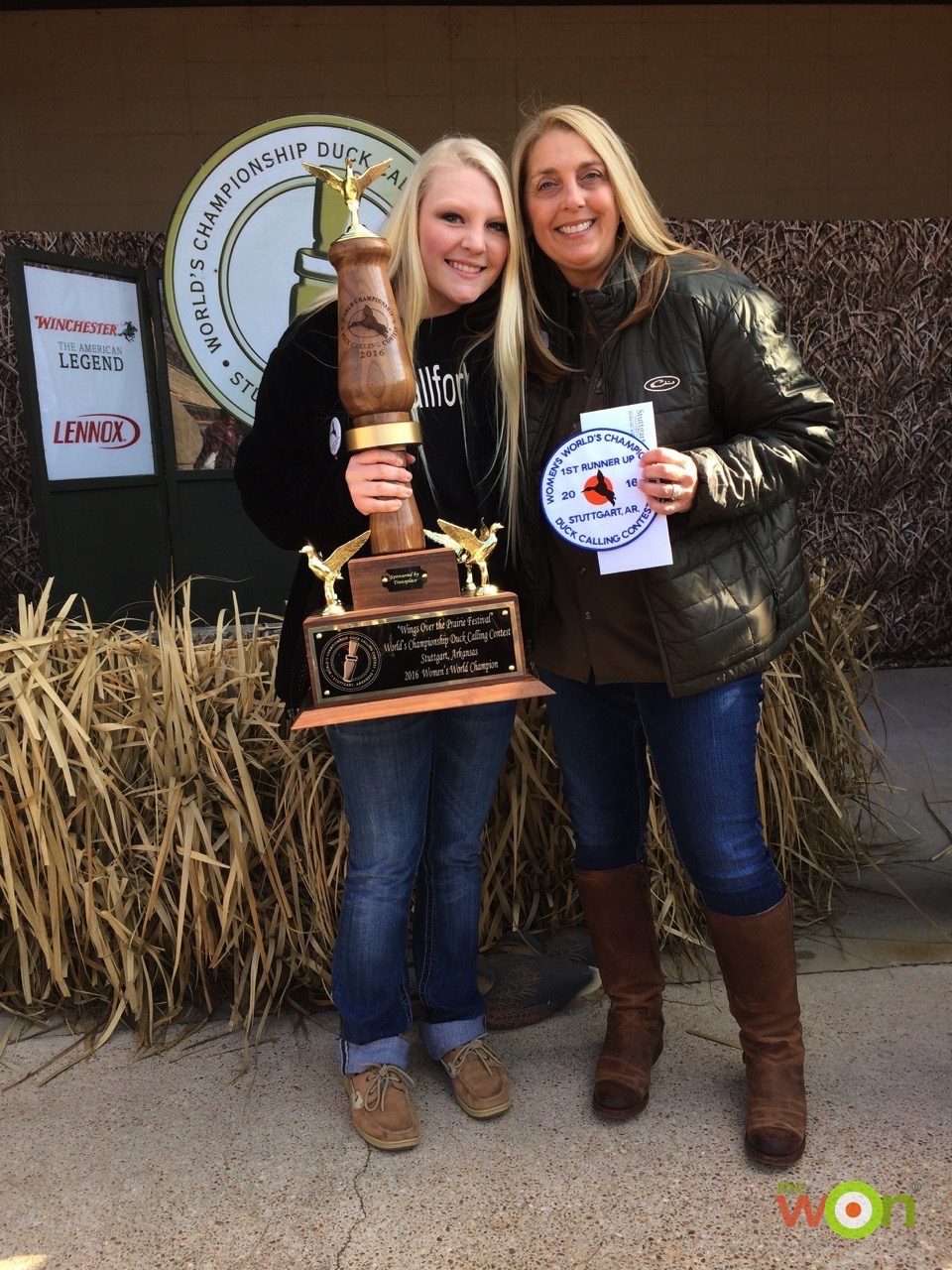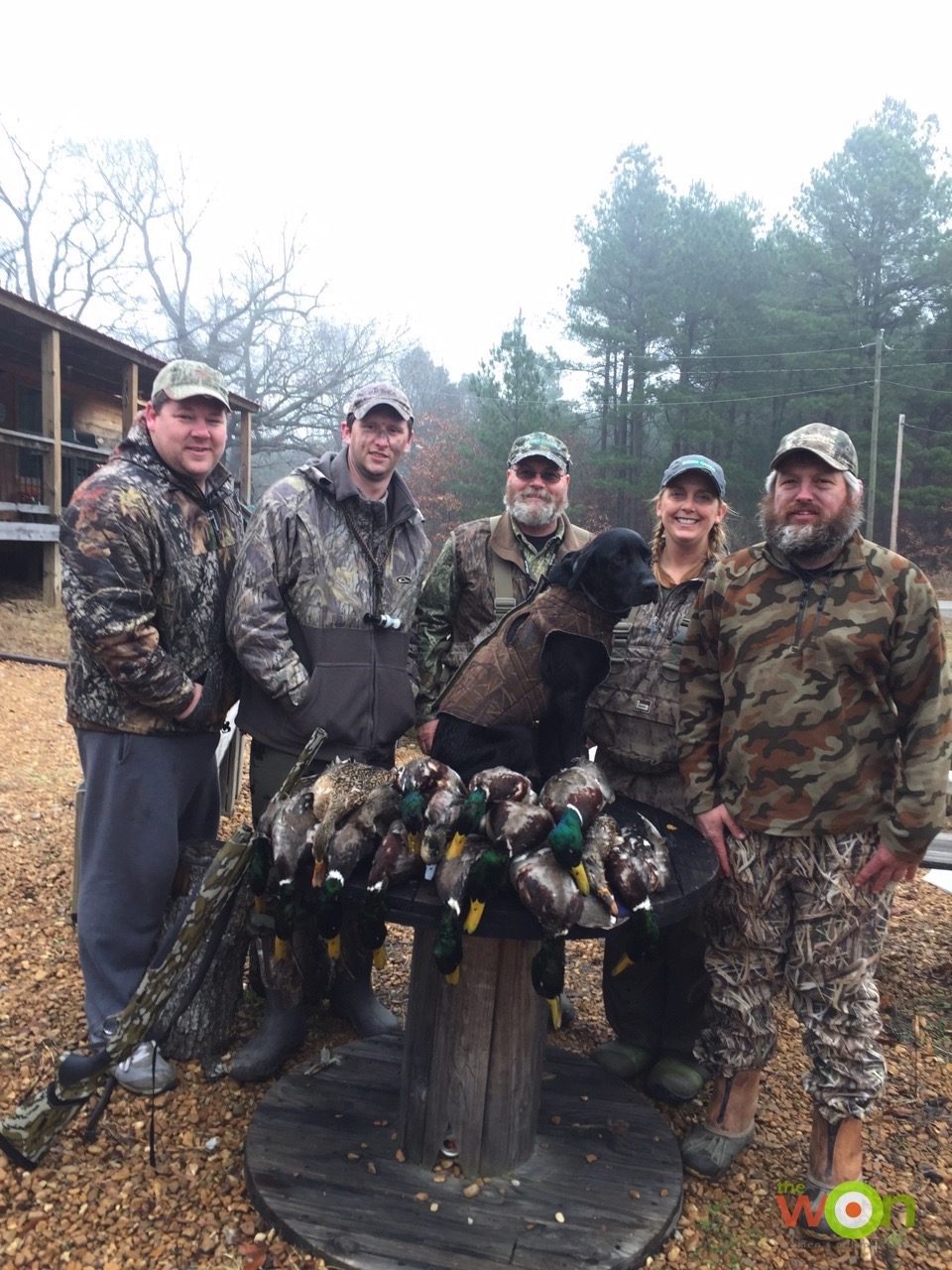Lana Van Winkle is a waterfowl guide from Arkansas and a competitive duck caller. She entered the world of hunting later in life, but quickly became a sought-after guide for her expert calling skills. She is currently taking time off from guiding to spend more time hunting with her son and close friends. As told to Courtney Nicolson.
I didn’t grow up hunting, but I always had that desire to hunt.
I was 36 or 37 when I first started. My mother had breast cancer during that time and I thought to myself “life is too short.” I saw too many things that she didn’t get to experience. Hunting was something I really wanted to do, so I figured out how to get started.
I learned a lot of things the hard way on my own.
I took advice from anyone who wanted to give it! I started out with deer hunting and my passion grew from there. My husband doesn’t hunt at all, but he was supportive. As time went on, I wanted to have some girlfriends to hunt with. I went online and found Babes, Bullets, and Broadheads, which is an online group that organizes women-only hunts across the country. I went on my first duck hunt with them; I made lifelong friends and I later became a staff member.

Lana Van Winkle with Rick Dunn, owner of Echo Calls.
Everyone says, “You’re from Arkansas, you have to hunt ducks!”
I never set out to be a duck hunter. What excited me the most was the calling, and I wanted to be the one to bring them in. Echo Calls is based in Arkansas and they offer free weekly calling classes during the summer. I started going about 5 years ago. They were taught by the owner, Rick Dunn, as well as some world champion callers. The very first year Rick asked me if I’d be interested in competition calling. I just laughed, I thought I’d never be that good! Anyways, I just wanted to learn for hunting use.
I went out on a duck hunt with an outfitter that wasn’t too far from where I lived.
He recognized that I could call pretty well, was a go getter and a hard worker. He asked me if I would come work for him as a “helper.” I did that for 3 years and then this last year I was a fully licensed guide. I was still working my regular full time job and doing this on weekends and days off. The hard work was not a problem for me and I enjoyed it. I was fortunate that the outfitter was very selective with the clients he sent out with me. He saw the benefit of having a female on staff, especially when we had female clients, dads and daughters, and families. That isn’t to say I didn’t take out groups of all men. They were all very respectful, but at the same time, I told them that it was THEIR hunt and to have fun!

2016 Women’s World Championship at Stuttgart
Around that time, I finally decided I wanted to try competition calling.
It’s very different from a hunting call. Some people listen to a routine and say, “That doesn’t sound like a duck.” Well, it does and it doesn’t. Competition calling is all about volume, control and finesse. Everything you use in the routine is something you’d use hunting. The more I hunt and call to real ducks, the better I get at competing, and vice-versa. I started competing in the World’s Championship Duck Calling Contest in Stuttgart, Ark., 3 years ago and I came in 5th place. The last 2 years, I was first-runner up. The world’s championship is the only one where women have their own division. My goal someday is to qualify for the men’s world’s division!

I loved meeting clients from all over the country.
They weren’t always used to seeing the volumes of ducks we have here and it can be exciting. It’s important to let your guide call the shot. Our goal is always to work the ducks to the water, and that will only attract more. Ducks may be there 1 day and they get up and leave overnight. I recommend booking a 2-3 day hunt. You will have days where you may not have many ducks and the next day you limit out in the same spot.
Know what you are physically able to do and your experience level.
If you have any physical challenges or difficulty getting in and out of a boat or pit blind, let your outfitter know ahead of time. They should be able to accommodate your needs. Our state is known for unpredictable weather. It may be in the 60’s one day and the 30’s the next. Waterproof gear and waders are a must. Layering your clothing will help keep you warm and comfortable.

It doesn’t matter if you weren’t raised in a hunting family or married into one.
If there’s something you’re passionate about and want to learn, don’t be afraid to try. I did, and it was one of the best things that I’ve ever done for myself. I’m not sure if I’ve retired from guiding or if I have another season in me. I truly enjoyed guiding and who knows what the future may hold!

I would recommend a 12-gauge semi-auto for duck hunting. You’re able to shoot faster with less recoil than a pump. The 12 gauge is going to give you more pellets and more power to knock the bird down. There’s nothing wrong with shooting a 20 gauge, that’s what I started out with and I killed plenty of ducks with it. The thing about a pump is that you must make sure to pump it all the way down and all the way back up. In the heat of the moment people can forget. When that happens, it won’t eject the way it should and you can have a jam.
Courtney Nicolson is an outdoor writer, hunter, and angler based in Denver, Colo. She is an active member of numerous conservation groups and is passionate about empowering women in the outdoors. Courtney is the senior producer/editor for Outdoor Sportsman Group Networks. View all posts by Courtney Nicolson